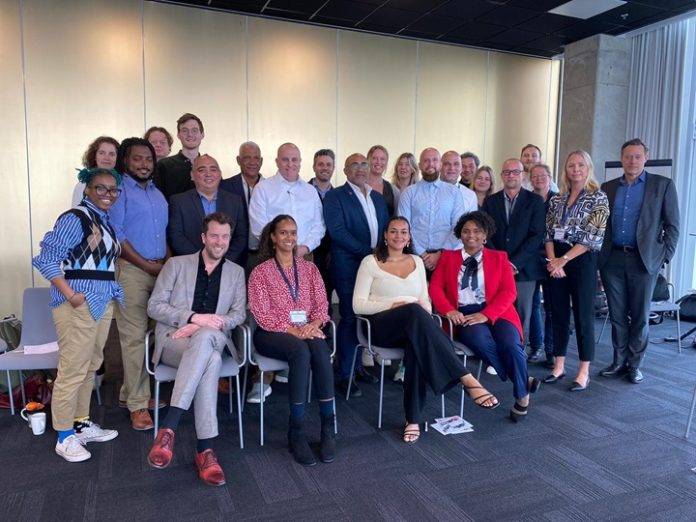At the end of March, representatives of the Public Entity Saba (PES) attended the 2024 conference for the International Panel for Deltas, Coastal Areas and Islands (IPDC) in the Netherlands as part of the process to develop a climate adaptation plan for Saba. Over 100 representatives from 13 different countries, islands and financial institutions were in attendance. Jordan Every, Sarah van der Horn and Justin Simmons-de Jong represented Saba in their respective capacities of policy advisor economic development and sustainability, NEPP program manager and project manager nature.
The purpose of the conference was to share and exchange climate adaptation knowledge, including strategy, (access to) finance, policy, science and (best) practices. The conference facilitated dialogue between the various country and island representatives on the challenges they face with climate change, achievements made and solutions to these challenges. Through these discussions, representatives were able to identify similar and contrasting experiences when it comes to water management, acquiring the funding needed to implement their climate adaptation projects and plans, and the impact of climate change on a societal level.
The representatives shared their personal experiences and the challenges their countries and islands face during speed-networking and country pitches. The implications of climate change for Saba include less rainfall, warmer temperatures, sea-level rise and more intense hurricanes. In the pitch for Saba, Every highlighted the unique challenges Saba faces as a result of climate change, some of which include water resource management, food security, erosion and runoff, loss of biodiversity, climate-proof infrastructure, scarcity of resources and the development of the limited space available with climate change in mind. Saba also often times lacks the expertise, capacity and funding needed to carry out bigger projects and plans. These are all intricately linked and make Saba vulnerable. “Our vulnerability is compounded by our geographical isolation,” Every pointed out. This is why improving Saba’s self-sufficiency will be a leading and key component in the island’s climate adaptation plan.
Saba also got the opportunity to present a use case at the conference. For this use case, Iris Keizer of KNMI presented the climate scenarios in relation to Saba, with a focus on rainfall, and Sarah van der Horn presented on the importance of the management of rainwater collection for Saba. The residents of Saba depend heavily on rainfall for many of their basic, daily activities, such as washing dishes, laundry, showering, the flushing of toilets and the watering of farms and home gardens. A decrease in rainfall as a result of climate change will impact these activities and also result in more erosion on the island, which both affect the lives of the island residents. With this in mind, the Public Entity has the ambition to develop and carry out a rainwater management plan that takes into consideration the extremes of droughts and heavy bouts of rainfall that come afterwards.
Earlier this year, a climate agenda was developed with the Ministry of Economic Affairs and Climate Policy, the Ministry of Infrastructure and Water Management, the Ministry of Interior and Kingdom Relations together with the governments of the 6 Dutch Caribbean Islands. From this agenda, Saba will develop a climate plan to prepare for the future by improving its self-sufficiency. Nature-based solutions will be used where possible. The information obtained at the IDPC conference and the relationships formed with other countries and islands will help in the development of this plan. A goal of this conference was to build the IPDC community by bringing together country and island representatives and knowledge partners to share their knowledge and experiences in a collective effort to tackle climate change. “We are all in this together,” said Simmons-de Jong at the final table session, as he pointed out how climate change impacts every one of us and the importance of and strength there is in working together with the sister islands of the Dutch Caribbean, the (European part) of the Netherlands and neighboring Caribbean islands.





























